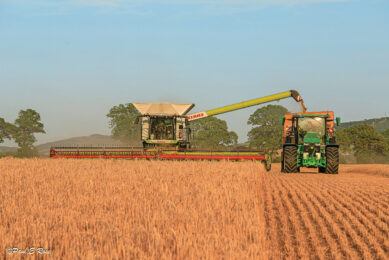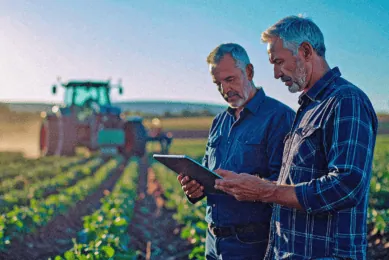Project to make agricultural robots smarter

The Open Deep Learning Toolkit for Robotics project aims to develop a new form of modular, open and non-proprietary ‘all-round’ artificial intelligence toolkit for core robotic functionalities.
The Department of Engineering at Aarhus University and the Danish development company, AGROINTELLI, together with an international team of researchers and companies, have launched a project aimed at making modern robots used in the health, food and agriculture sectors much smarter and more efficient than they are today.
The team will jointly design, develop and train core functionalities of a sort of ‘active artificial perception system’ for robots that goes far beyond the modern computer-vision technology and which will enable robots to perform much more complex tasks in the future.
Artificial intelligence toolkit for core robotic functionalities
The project is called Open Deep Learning Toolkit for Robotics (OpenDR), and it aims to develop a new form of modular, open and non-proprietary ‘all-round’ artificial intelligence toolkit for core robotic functionalities. The toolkit will provide advanced perception and cognition capabilities that meet the general requirements of robotics applications in the areas of healthcare, agri-food and agile production.
Text continues underneath image
Robotti autonomous tool carrier
The Danish delegation is focusing on developing advanced solutions for the agricultural sector. AGROINTELLI is already well-known for its autonomous tool carrier, Robotti, and in this context the team will develop and test an intelligent system for mechanical weed control.
Via an on-board camera, Robotti can distinguish between weeds and crops, and initiate mechanical control targeting the weeds. This will improve the sustainability of the production system with minimum impact on the crop and the yield.
“Via deep learning methodologies, we will be able to increase the precision of people-, objects-, and crop detection and classification as well as the autonomy of the Robotti, while simultaneously decreasing the computational power needed for performing the tasks,” says CEO Ole Green at AGROINTELLI.
Join 17,000+ subscribers
Subscribe to our newsletter to stay updated about all the need-to-know content in the agricultural sector, two times a week.



